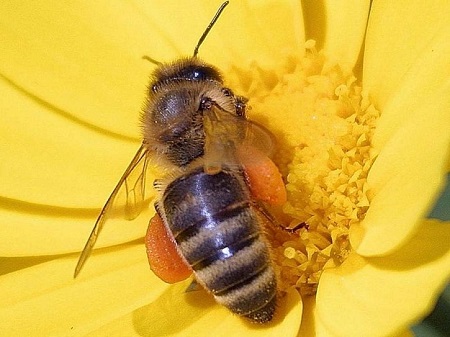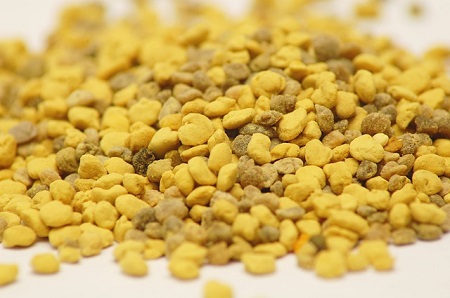您的購物籃內沒有商品!
Pollen doesn't always mean red eyes, a runny nose and allergies. The pollen bees give us is completely different and a real source of enjoyment.

Pollen is the seed from the reproductive system of plants. When bees collect from flowers, they harvest pollen using their back legs. They mix the pollen with a bit of honey (or nectar) and saliva to create little balls they can bring back to the beehive in their pollen baskets.
Once back at the hive, they store it in dedicated cells to make bee bread, also known as ambrosia. It is used to feed the older broods and also as special food for the worker bees who make royal jelly. It is an important source of protein for bees.
Note that "bee pollen" (entomophile) and anemophilous pollen (transported by the wind) are very different. Entomophile pollen does not cause allergies. Common pollen allergies are not due to ingestion, but to inhalation. Entomophile pollen allergies are very rare and completely distinct from existing anemophilous pollen allergies.

Beekeepers only harvest a small portion of the pollen for human consumption to ensure that they won't damage the colony.
A grille is installed on the main entrance of hives dedicated to pollen harvesting. It allows the bees to enter, but picks off the pollen balls they've collected...and drops them in a special container. A secondary entrance is left open to enable the production of "bee bread" by the workers.
Once harvested, the fresh pollen can be kept for two weeks without problem. However, one of the following is required for longer storage periods:
Generally speaking, one or two spoonfuls can be taken every day for internal treatment. It can also be taken with honey, milk or coffee..
Propolia uses it as a food supplement in its formulas like Tonic potion® in which it is mixed with honey and Propolis.